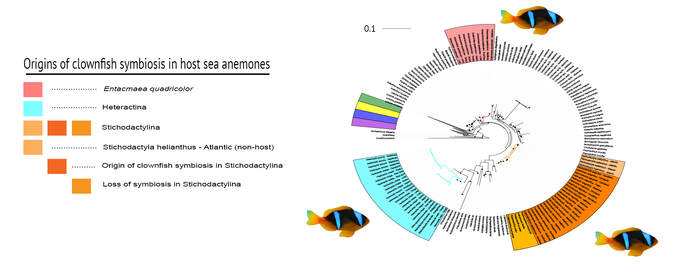Genomic Convergence and Consequences in a Model Marine Mutualism
Mutualisms can radically shape the architecture of the genome, trigger adaptive radiations, lead to rapid population expansions, and impact rates of molecular evolution. Using the multiple origins of symbiosis with clownfishes as a research framework, our lab is conducting full genome sequencing of the clownfish-hosting sea anemones to test general evolutionary expectations of mutualism. Specifically, we are testing: 1) whether mutualism with clownfishes has generated similar selective pressure and therefore resulted in convergent genome evolution and architecture among host anemones. 2) The Red King Hypothesis, which states that the balance of mutually exploitative symbioses should lead constituent mutualistic lineages to have slower rates of molecular evolution than their free-living relatives. 3) Whether the mutualistic benefits of hosting clownfishes led to significant ecological opportunity for host anemones, and thus, signatures of demographic population expansion that coincide with the onset of the symbiosis. The Titus Lab has funding to hire a Postdoctoral Researcher to lead this work (see the Join page). This project is in collaboration with Dr. Nicolas Salamin at the University of Lausanne, Switzerland.


